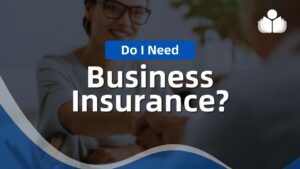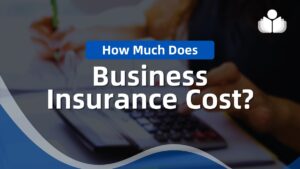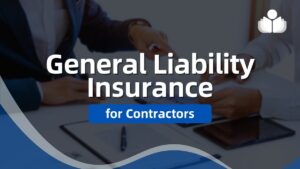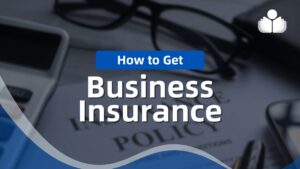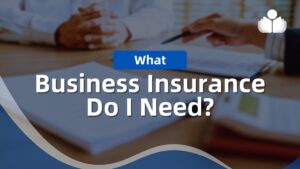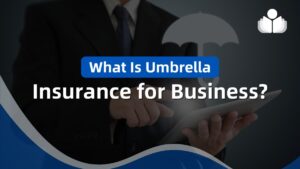Accidents can cause significant financial setbacks for small businesses. A burst pipe or severe weather could destroy your office and equipment, while a fire could wipe out your inventory and business records. This is why commercial property insurance is crucial. In this article, you’ll learn all about this essential insurance, how to obtain it, and where to get it.
>> Explore NEXT for Comprehensive Coverage >>
What Is Commercial Property Insurance?
Commercial property insurance is a contract between your business and an insurance company that specifies how you’ll be compensated if your business’s physical assets are stolen, destroyed, or damaged due to a covered event. This coverage is also known as business property insurance.
Commercial property insurance is often bundled with general liability insurance and business interruption insurance as part of a Business Owner’s Policy (BOP).
Which Businesses Need Property Insurance?
Any business with valuable physical assets should have commercial property insurance. Here are examples of businesses that should consider this type of insurance:
- Brick-and-Mortar Businesses: Stores, restaurants, and other physical locations need this insurance to cover their buildings and contents against events like fire, storms, or vandalism.
- Home-Based Businesses: Home-based business owners often mistakenly believe their homeowners’ insurance covers their business needs. Business property insurance protects business equipment and inventory.
- Manufacturers and Warehouses: These businesses have extensive physical assets such as machinery, equipment, and stock that require protection against damage or loss.
- Service Providers: Businesses that provide services, such as salons, clinics, or repair shops, need this insurance to protect their tools, equipment, and facilities.
- Offices: From small startups to large corporations, business property insurance helps protect physical assets like computers, furniture, and documents.
- Landlords: Property owners who lease commercial space may need business property insurance to protect their buildings and might also require tenants to have their own policies.
What Does Business Property Insurance Cover?
A business property insurance policy safeguards physical assets, covering the building itself, business personal property like work equipment, furniture, computers, inventory, and even others’ belongings within the workplace.
The policy’s causes of loss forms specify which events these assets will be protected against. Here’s a breakdown of the three main forms and the types of damage they cover:
Basic causes of loss
- Fire or smoke
- Lightning
- Explosions
- Windstorm or hail
- Riots or civil commotion
- Aircraft or vehicle crashes
- Vandalism
- Sprinkler leakage
- Sinkhole collapse
- Volcanic action
- Glass breakage from the above events
Broad causes of loss
- Falling objects
- Weight of snow, ice, or sleet
- Water damage from leaking appliances (not sump overflow)
- Building collapse
Special Causes of Loss:
This provides comprehensive coverage minus specific exclusions listed in the policy. There are two types of business property insurance coverage: actual cash value coverage and replacement cost coverage.
Actual cash value insurance covers replacing lost or damaged property with an item of similar quality,
such as income loss. Business income insurance does.
How to Get the Best Commercial Property Insurance
One of the smartest ways to secure commercial property insurance is by bundling it with other essential business insurance types. This bundle covers many issues, including accidental injuries and lost income. You may also need coverage to replace your business property with new, equivalent items. Here are some points to consider when purchasing commercial property insurance.
Property insurance can be purchased for small businesses as part of a business owner policy (BOP). A BOP combines commercial property insurance, general liability insurance, and business interruption coverage. Bundling these policies in a BOP is often more cost-effective than buying them individually.
This insurance protects a business from various claims, such as bodily injury, property damage, copyright infringement, reputational harm, and advertising injury. If someone sues your business over one of these issues, the business liability insurance will cover legal costs and any settlements or judgments.
This coverage helps a business recover lost income due to a covered issue. If your business can’t open because of a problem like a fire or windstorm, this insurance reimburses you for lost income.
Considering these points when buying commercial property insurance will ensure you have the right protection for your business at the best price.
>> Ensure Your Business Future With NEXT >>
How Much Does Commercial Property Insurance Cost?
The cost of commercial property insurance can vary widely based on several factors. Here are some key determinants of the price:
Value of Property: The more valuable your property—like buildings, equipment, and inventory—the higher the insurance cost since more coverage is needed.
Business Type: Different businesses carry different risk levels. For instance, a restaurant might pay more for insurance than a bookstore due to the higher fire risk.
Location: Businesses in areas prone to natural disasters like hurricanes, earthquakes, or flooding might face higher premiums. Urban areas might also have higher rates due to a greater risk of theft and vandalism.
Building Materials: Your property’s construction materials can impact insurance costs. Buildings made with fire-resistant materials may have lower premiums than those made with more flammable materials.
Security Measures: Strong security measures, such as alarms, sprinkler systems, and security cameras, can help reduce insurance costs.
Coverage Options: The extent and type of coverage also affect the cost. Opting for a policy that covers a wide range of risks or choosing a lower deductible can increase the premium.
On average, small to medium-sized businesses might pay anywhere from a few hundred to several thousand dollars annually for commercial property insurance. For precise costs, it’s best to get quotes from multiple insurance providers to find detailed pricing based on your specific business needs.
>> Insure Your Business With NEXT >>
Best Business Property Insurance Providers to Consider
NEXT Insurance focuses on small businesses and entrepreneurs, offering a digital-first approach to simplify the insurance process. Customers can purchase and manage policies entirely online, making it ideal for those who prefer digital transactions.
NEXT’s customizable offerings include low-cost general liability insurance, professional liability, commercial auto, and more, tailored to various industries. This makes it a convenient choice for business owners seeking efficiency and customization in their insurance solutions.
With over 200 years of experience, The Hartford serves a wide range of businesses from small enterprises to large corporations. Known for its reliability and comprehensive coverage options, The Hartford offers a spectrum of business insurance coverages, including property insurance.
Additional services such as risk management and a streamlined claims process enhance its offerings, making it a solid choice for businesses seeking extensive support and a proven track record.
Hiscox specializes in small business insurance, offering tailored solutions for professionals and larger organizations. The company is renowned for its customer service and the ability to purchase insurance directly or through brokers.
Hiscox focuses on providing specialized policies for specific industries, including IT, consulting, and health and beauty. Its diverse coverage options, including professional liability and business owners’ policies, emphasize customization to address the unique risks of different professions.
Aimed at small to medium-sized businesses, CoverWallet provides a modern, tech-savvy platform for buying and managing insurance. Its digital dashboard allows businesses to manage policies and access support online.
Although CoverWallet isn’t an insurer, it collaborates with various insurers to offer quotes, helping businesses find the best coverage. This model particularly benefits businesses seeking a comprehensive overview of their insurance options through a single, accessible interface.
Chubb is one of the largest insurance companies globally, offering a wide variety of insurance products, including extensive options for commercial property insurance. Catering to clients from small businesses to multinational corporations, Chubb provides tailored insurance solutions for different industries.
The company is noted for its superior asset protection and risk management services, designed to minimize the financial impact of disasters and accidents. Chubb’s commitment to exceptional service, claim handling, and global presence makes it a preferred choice for businesses seeking a reliable insurance partner with extensive resources and expertise.
Business Property Insurance – FAQs
>> Get Your Business Insured With NEXT! >>
Bottom Line
Business property insurance is crucial for companies of any size, protecting against various risks that could jeopardize physical assets and financial stability. Choosing a provider should be based on your business’s specific needs, including your operations, the value of your assets, and the inherent risks of your industry.
 Sections of this topic
Sections of this topic













